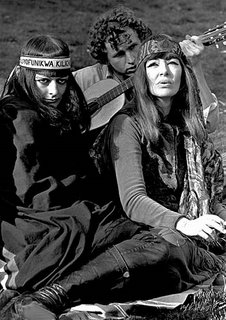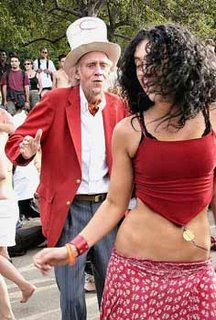
"Become a person who appreciates,
... and you will thrive."
That is the secret to life.


In the Tao Te Ching, Lao-Tze writes,
“Do you think you can improve the world?
You cannot.
The world is a sacred vessel.”
In many such statements in this remarkable text, Lao-Tze tells us that the way of wisdom opens only to those who approach the world with the willingness to be empty, to follow rather than lead.
“When the sage leads the people to victory,
they say ‘We did it ourselves!’”
The sage does not boast or assert or use force
to make anything happen.
Because “he does not contend, he cannot be beaten.”
He is subtle; he doesn’t brag about how great he is, or take pleasure in the defeats of others. “Victorious in war, he grieves for his fallen enemy.”
He knows that the world is a sacred vessel because it fills up with the consciousness poured into it, which it then re-presents as factual events and conditions.
Trying to change the world, the sage knows, is pure folly—
just as it would be folly
to try to wash one’s face
by scrubbing its reflection in the mirror.
The world changes only when the self changes;
it is an indirect path.
To feel more secure in the world, we have to become secure enough in ourselves to be willing to promote security for others. Rattling sabers will never make us safe.
This applies at every level.
To be prosperous, we must first become generous.
To be closer to people, we first have to be open to them.
Always, consciousness is first.
If this simple and profound principle were understood and practiced by national leaders, the world would enter a new era
of peace, mutual respect, and sanity.
But we need not wait for them.
It is for us to understand and practice it.
Then, without trying, we become leaders.
Now: Think of a situation you’re facing that you’ve been wanting to change. You may be alone and long to be with a partner who will complete you. Perhaps you’re facing a health crisis and want to recover. Or you may be struggling to make ends meet, and want to have more money.
In every case, we suggest that you let go of trying to change the world (conditions).
This means that you would stop trying to find your partner and begin being a partner to yourself; that you would forget about recovering and begin appreciating the ways you are already well; that you would release all worries, strategic thinking, and urgency about making money and start extending yourself generously in the form of whatever currency is available to you: a moment of real listening, a kind word, a gesture of tolerance or forgiveness, an hour of attentive and interested time with your child or a friend.
When you’re loving toward the world, the world reciprocates. It returns your love.
When you’re resting in gratitude for your life and whatever vitality you have, the world notices and increases their measure.
When you give more generously to others, the world gives more generously to you.
This is the way taught by Lao-Tze: to stop trying to make things happen and instead—not strategically,
but solely for the joy and relief of inner agreement—
be what you want to experience.
In this practice, you will discover the power of emptiness and living indirectly, and how all the power of a concerted will cannot even reach the hem of the effortless power of willingness.
source